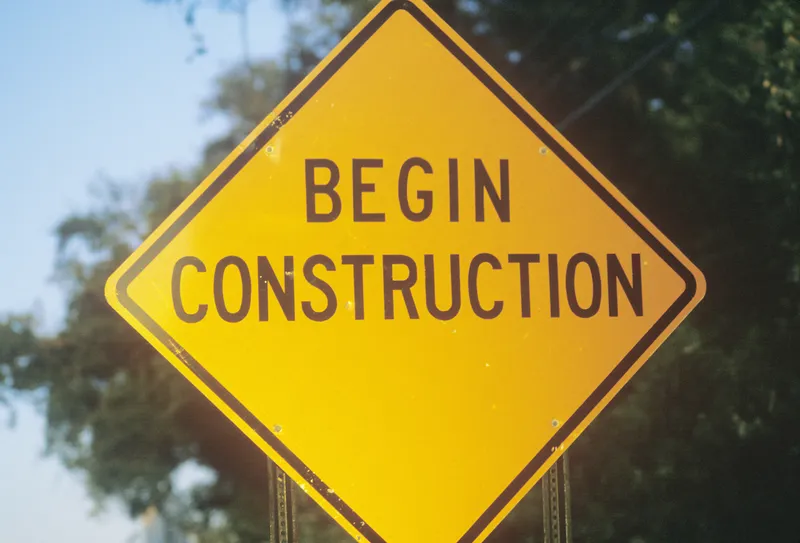
As COVID-19 brings countless businesses to a halt, the construction industry remains resilient, according to the US-based Association of Equipment Manufacturers (AEM).
Unlike many industries where working-from-home and drive-thru services are feasible countermeasures, construction firms have job sites to run. “You can’t hang drywall from your house,” said Chris Hopper, executive vice president and general manager of construction Skanska, in an interview with the Cincinnati Business Courier newspaper.
The US division of Skanska, based in Sweden, employs more than 10,000 people in the US and has developed a multi-faceted COVID-19 response plan to help keep employees safe and job sites operational. The Association of Equipment Manufacturers - show owner and producer of the recent CONEXPO-CON/AGG in Las Vegas - said it has looked at what Skanska is doing and companies should take note of its processes. Among these are referring to information on the Centers for Disease Control and Prevention website which gives guidelines for prevention.
Other Skanska response plans include screening measures for employees who have recently travelled, instructing employees to stay home if feeling sick and restricting in-person meetings and other employee gatherings. Skanska issued a ban on all international travel through at least April. Domestic travel has also been greatly limited.
Skanska is training all employees on the 6-foot (2m) distancing rule that includes no handshakes and also setting up internal dedicated and empowered COVID-19 response teams. Skanska issued a ban on all international travel through at least April. Domestic travel has also been greatly limited.
Skanska is using its internal company website – intranet - to provide general updates on COVID-19 and to reinforce guidelines and standard operating procedures. This same information is also available through the company’s mobile app.
The AEM says that social distancing is a recognised critical component of any COVID-19 response plan, such as that introduced by Turner Construction, based in New York. The company which has around 10,0000 employees, is limiting the size of employee gatherings and has already put a stop to large group meetings. Attending events such as conferences has also been suspended. Remote conferencing technology is now being used for meetings. On that note, Turner Construction has expanded its network capacity and training tools to accommodate this surge in online network activity.
It is, however, sometimes essential for in-person attendance at a meeting. Turner Construction mandates that these meetings occur in spaces allowing for adequate social distancing. Additionally, Turner is adapting standard operating procedures to limit the number of employees in an elevator or hoist at a given time.
Hygiene has also been at the top of the list for Turner Construction. All job sites are required to provide access to hand-washing stations. Additionally, staff has been trained to religiously clean and disinfect frequently touched objects such as lunch tables, coffee machines and door knobs.
Harkins, an employee-owned construction company based in the US state of Maryland, has forbidden group lunches and all meetings are conducted remotely via computers using the Microsoft Teams platform. Jobsite leaders are trained to closely monitor employee behaviour to ensure that the guidelines are being followed.
Harkins has also taken steps to step up jobsite cleaning. Trailers are now cleaned daily. Furthermore, a commercial cleaning service is brought in to clean and disinfect certain areas of a jobsite if COVID-19 exposure is suspected to have taken place. Harkins has also increased the volume of hand sanitising products deployed to jobsites.
Meanwhile, the US-based Associated General Contractors of America (AGC) says it has been lobbying for the construction industry to be deemed essential as government officials issue new mandates for certain business closures.
The AEM, too, says it has been working closely with federal, state and local officials to make sure they take immediate steps to contain the spread of COVID-19, support equipment manufacturers and their employees, maintain vital supply chains and ensure the country’s economic resilience. AEM sent a letter to the US president requesting that the federal government designate equipment manufacturers, suppliers, and dealers as essential and providing state and local jurisdictions with a clear and consistent federal directive moving forward.
“While businesses and citizens wait for our nation’s leaders to put their partisan bickering aside and come together in the face of this unprecedented national crisis, the construction industry is showing that it is possible to put the nation’s interests ahead your own,” said the AEM.
“By adopting the COVID-19 prevention protocols, construction companies can continue leading by example, all while helping to flatten-the-curve and help the nation emerge from this crisis."
The Centers for Disease Control and Prevention is headquartered in Atlanta in the US state of Georgia and has experts throughout the US and world. The website is: www.cdc.gov.








